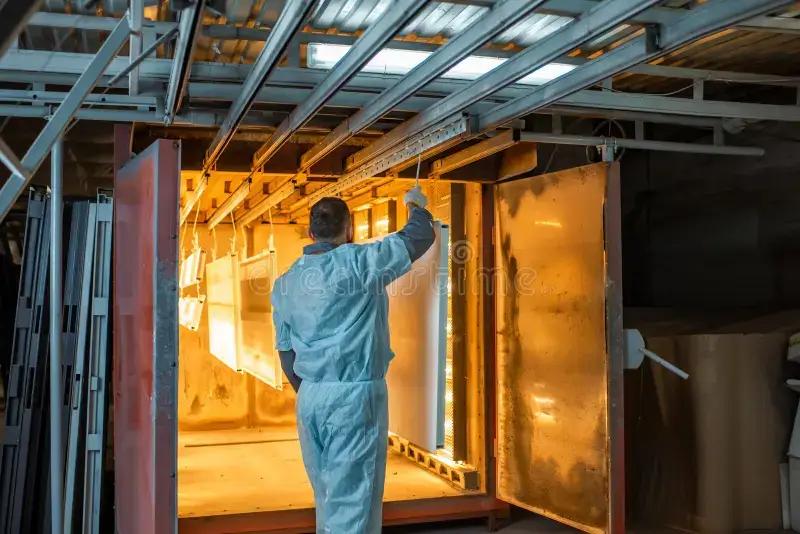Agrawau: A Deep Dive into Cultural, Historical, and Modern Significance

Agrawau: Welcome to a fascinating exploration of Agrawau, a term steeped in cultural, historical, and contemporary relevance. For many, Agrawau may evoke images of rich traditions, deep-rooted customs, and a sense of belonging that transcends time and borders. This blog post aims to unfold the layers of meaning behind Agrawau, tracing its roots from ancient practices to its influence in today’s global society. Whether you’re a history buff, cultural enthusiast, or simply curious, this journey through the world of Agrawau promises insights into a unique heritage that continues to shape lives and communities worldwide.
What is Agrawau?
The term Agrawau is believed to have multiple interpretations depending on the cultural context in which it is used. It can refer to a community, a philosophy, or a set of traditions, but most commonly, it is associated with a historic lineage of people connected by shared customs, values, and beliefs. For many, Agrawau serves as both a symbol of identity and a foundation upon which modern practices are built.
Etymology of Agrawau
The word “Agrawau” has linguistic roots that can be traced back to ancient dialects. Though exact origins are debated, scholars agree that the term is likely derived from Sanskrit or Prakrit, ancient languages of the Indian subcontinent. The word itself can be broken down into components, each carrying a unique meaning that sheds light on its historical and cultural importance. While the precise definition may vary, Agrawau generally connotes leadership, prosperity, and community—a testament to the values held by the people who first used this term.
A Community of Significance
The Agrawau community, believed to be one of the many subgroups within the broader Agrawal or Vaishya communities, has a long-standing presence in South Asia. Historically, members of Agrawau were involved in trade, commerce, and various forms of entrepreneurship. Their deep involvement in mercantile activities positioned them as influential figures in their respective regions. The community has a reputation for industriousness, philanthropy, and leadership, traits that have enabled them to thrive even in times of social and economic change.
Historical Roots of Agrawau
Ancient Origins
The history of Agrawau dates back to ancient civilizations, with many historians tracing their lineage to the legendary king Agrasena. Agrasena, a mythical figure in Indian folklore, is credited with laying the foundation for the Agrawal community, which is believed to include subgroups like Agrawau. Agrasena’s reign is often depicted as one of prosperity, fairness, and community-oriented governance. His legacy is honored through customs that emphasize unity, charity, and ethical behavior.
The Agrawau community, like many others in the ancient world, relied heavily on the principles of dharma (moral duty) and karma (action). These philosophical underpinnings guided their day-to-day lives, especially in matters of trade and commerce. By adhering to these principles, Agrawau merchants gained a reputation for being trustworthy, honorable, and committed to fair practices.
Role in Trade and Commerce
As a subgroup within the larger Agrawal community, Agrawau merchants played a pivotal role in the development of trade networks across ancient India and beyond. They were instrumental in establishing trade routes that connected the Indian subcontinent with the Middle East, Central Asia, and Southeast Asia. The goods traded by Agrawau merchants ranged from textiles, spices, and gemstones to precious metals and other commodities. Their deep understanding of market dynamics and their commitment to ethical business practices enabled them to build vast networks of commerce and influence.
Agrawau merchants were also known for their philanthropic efforts, often contributing to the development of local infrastructure, educational institutions, and temples. This tradition of seva (selfless service) continues to be a defining characteristic of the Agrawau community today, as many members remain deeply involved in charitable work and community development projects.
Agrawau in Medieval India
During the medieval period, the Agrawau community continued to flourish under various regional empires, including the Delhi Sultanate and the Mughal Empire. As trade expanded across the Indian Ocean and into Europe, Agrawau merchants found themselves at the forefront of this commercial revolution. They not only engaged in trade but also served as advisors to kings and emperors, offering their expertise in matters of finance, taxation, and governance.
One of the key factors behind the success of Agrawau merchants during this period was their ability to adapt to changing political and economic conditions. Whether navigating the shifting alliances of regional powers or dealing with the arrival of European colonial forces, the Agrawau community remained resilient and resourceful.
Cultural Significance of Agrawau
Festivals and Traditions
The Agrawau community has a rich cultural heritage that is reflected in its festivals, rituals, and customs. One of the most significant festivals celebrated by the Agrawau community is Agrasena Jayanti, which marks the birth anniversary of King Agrasena. During this festival, members of the community come together to honor their ancestral roots, perform rituals, and engage in acts of charity. Agrasena Jayanti serves as a reminder of the values of unity, fairness, and service to others.
In addition to Agrasena Jayanti, the Agrawau community also celebrates other major Hindu festivals, such as Diwali, Holi, and Navaratri. These festivals are not only occasions for religious observance but also opportunities to strengthen social bonds and reaffirm the community’s shared values.
Language and Literature
The Agrawau community has contributed to the rich tapestry of Indian literature and philosophy. Many members of the community have been patrons of the arts, supporting poets, writers, and scholars throughout history. The community’s emphasis on education and learning has led to the preservation of important literary works, including religious texts, historical chronicles, and philosophical treatises.
The use of language, particularly Sanskrit and later Hindi, has played a crucial role in shaping the identity of the Agrawau community. Through the written word, the community has passed down its traditions, beliefs, and values from generation to generation, ensuring that the legacy of Agrawau continues to thrive.
Modern Relevance of Agrawau
Agrawau in Contemporary Business
In today’s globalized world, the Agrawau community continues to play a prominent role in business and entrepreneurship. Many members of the community have established successful enterprises in industries ranging from manufacturing and finance to technology and real estate. Their business acumen, combined with a strong sense of social responsibility, has enabled them to navigate the challenges of the modern economy while maintaining their commitment to ethical practices.
One of the key factors behind the success of contemporary Agrawau entrepreneurs is their ability to blend traditional values with modern innovation. By staying true to their cultural heritage while embracing new technologies and business models, Agrawau business leaders have positioned themselves at the forefront of global commerce.
Philanthropy and Social Responsibility
Philanthropy remains a cornerstone of the Agrawau community’s identity. Many members of the community are actively involved in charitable work, supporting initiatives in education, healthcare, and social welfare. This tradition of giving back to society is deeply rooted in the community’s belief in dana (charity) and seva (service).
Agrawau philanthropists have established foundations, schools, and hospitals that benefit people from all walks of life. Their contributions to society reflect the community’s longstanding commitment to making a positive impact on the world.
Cultural Preservation in the Diaspora
As members of the Agrawau community have migrated to different parts of the world, they have taken their cultural traditions with them. Today, there are Agrawau communities in countries such as the United States, Canada, the United Kingdom, and Australia. In these diaspora communities, cultural preservation efforts are paramount. Festivals, language classes, and cultural organizations help ensure that the younger generations remain connected to their heritage.
At the same time, the Agrawau diaspora has embraced multiculturalism, integrating elements of their host countries’ cultures while maintaining their unique identity. This ability to balance tradition and modernity has allowed the Agrawau community to thrive in a rapidly changing world.
The Future of Agrawau
Challenges and Opportunities
As the world continues to evolve, the Agrawau community faces both challenges and opportunities. One of the key challenges is ensuring that the younger generation remains connected to their cultural roots. In an age of globalization and digital communication, there is a risk that traditional customs and values may be lost.
However, there are also opportunities for the Agrawau community to leverage modern technology to preserve and promote their heritage. Digital platforms, social media, and online education can play a vital role in connecting community members across the globe and ensuring that the legacy of Agrawau is passed down to future generations.
Agrawau’s Global Impact
The influence of the Agrawau community extends far beyond its historical origins. As members of the community continue to make significant contributions to business, philanthropy, and culture, their impact is felt on a global scale. The values of integrity, service, and innovation that define the Agrawau community are more relevant than ever in today’s interconnected world.
Through their leadership in business, their commitment to social responsibility, and their dedication to preserving their cultural heritage, the Agrawau community serves as an example of how tradition and modernity can coexist harmoniously. As we look to the future, the legacy of Agrawau will undoubtedly continue to inspire and shape communities around the world.
Conclusion
The journey of Agrawau is one of resilience, innovation, and community. From its ancient origins in the Indian subcontinent to its modern-day global presence, Agrawau has evolved while remaining true to its core values of integrity, service, and cultural preservation. Whether through business, philanthropy, or cultural initiatives, the Agrawau community continues to make a meaningful impact on the world, ensuring that its legacy endures for generations to come.

